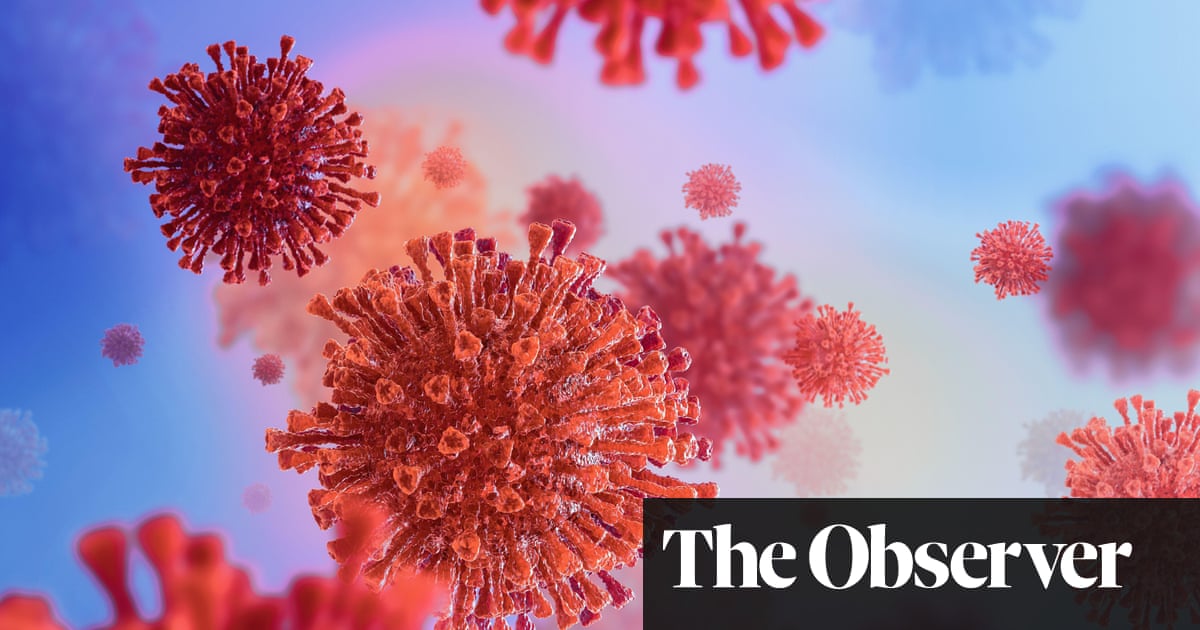
[ad_1]
Scientists are developing a range of second-generation Covid vaccines aimed at extending protection against the disease.
Candidates include a version that could provide immune defense against many different virus variants, while other researchers are studying vaccines that would generate responses aimed specifically at blocking transmission of the disease.
Other projects include research into creating multiple vaccines that could each tackle different strains of the virus, but would be delivered in one shot in a similar fashion to annual flu shots, which currently combine four vaccines. against different strains of the influenza virus.
Right now, Covid vaccines are designed to prevent infected people from becoming seriously ill, to prevent hospitalizations and death. It is not yet clear how effective they are at blocking viruses passing from person to person.
“There is no indication that the new virus variants that have emerged recently cause more serious disease than the original virus,” said Professor Jonathan Ball, a virologist at the University of Nottingham. “However, there is evidence that some of these newer variants may be more effective at infecting and therefore spreading in populations that have existing partial immunity after natural infection or vaccination.
One possible solution is a vaccine – currently in development by a team of scientists including Ball – that targets not only the spike protein on the surface of the Covid virus, but also another part of the virus, called the N protein.
“Hopefully this should result in a much broader immune system response and thus provide much broader immunity against the virus,” Ball told the Observer. “And given what we now know about the emergence of variants of the Covid virus, it could help us to strengthen protection against the disease,” he added.

The project, which also involves immunology company Scancell and researchers at Nottingham Trent University, has reached a stage where manufacture of the new vaccine has begun.
Ball said he hoped clinical trials for the vaccine could start very soon.
“The plasmid which forms the basis of the vaccine has already been used in other medical treatments and is well tolerated in patients,” he added. “We therefore hope to be able to continue clinical trials fairly quickly.”
A different approach is taken by scientists at the University of Bristol who have started to develop a vaccine that could induce antibodies in the nose and throat.
“This is the route by which the virus infects a person, so if you could specifically aim to generate antibodies in the lining of the upper respiratory tract, you could help prevent the virus from infecting someone or being transmitted.” Said Adam Finn, professor of pediatrics at Bristol Medical School, University of Bristol.
“In fact, you would create the antiviral equivalent of those United Nations peacekeepers who control war zones and prevent invasions.”
To do this, Finn and his colleagues measure the levels of antibodies in the mucous secretions of people who have received different vaccines against the disease.
“By comparing the strength of these immune responses, we might then be able to predict how effective they are in preventing transmission,” he added. “And from there we could identify which vaccines are best able to stop the virus from spreading from person to person, unlike current vaccines which are primarily evaluated on how they prevent the development of symptoms. of Covid. ”
This point was supported by Deborah Dunn-Walters, Professor of Immunology at the University of Surrey: “The vaccines that we have developed over the past year are undoubtedly incredible achievements, but they are not the end of the story.
“We started with vaccines that give us maybe about two-thirds protection against serious disease and maybe 50% protection against transmission of the virus. The thing we need to do is improve it. There is still a lot of work to be done if we are to beat Covid. “
Analyze the numbers
After a year of some of the most disheartening news that has plagued the nation in modern times, there has been a drastic shift in the narratives of how we fare in the battle against Covid-19. By a host of different criteria, the prospects for the UK to exit lockdown in the relatively near future appear to be growing stronger.
The number of hospitalizations, deaths and new cases has plummeted in the past three weeks, as Britain’s vaccination schedule continues to exceed that of most other industrialized countries. Scientists have urged caution not to act too quickly in response to this barrage of good news. Nonetheless, there is now a palpable feeling that a significant change in the nation’s fortunes is taking place.
Graphic
This point was summed up by epidemiologist Mark Woolhouse of the University of Edinburgh last week: “The data looks much better than anyone might have thought two or three weeks ago. We must therefore surely be able to take a more optimistic position on what is now safe to do. “
For good measure, other research suggests that Pfizer and AstraZeneca vaccines – which were designed primarily to prevent serious illness – also reduce person-to-person transmission of the virus – although it is not known. how much more. A relatively high level of blockage in transmission would have another significant impact on reducing the pandemic.
But perhaps the most encouraging of all statistics comes from Israel, which has been the most energetic nation on the planet to immunize its people. Targeting its older citizens as a priority, it has, as a result, seen hospitalization rates for the over-60s drop relative to those in younger age groups. It’s a dramatic illustration of the vaccine’s effectiveness and has clear implications for the UK where early signs also suggest Covid jabs – in addition to lockdown measures – are starting to lower death rates.
“The performance of the vaccine is really good news,” Woolhouse said. “You never really know how clinical trials will translate into a real mass vaccination program. But the numbers look pretty good. Vaccines protect very well against serious illnesses. “
Source link